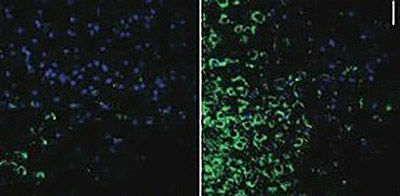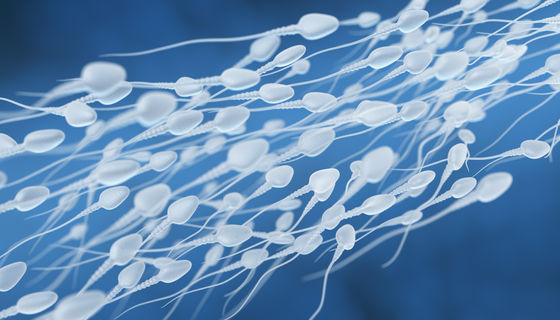It turns out that air pollution causes 'sperm loss'

Previous studies have shown that air pollution affects not only the respiratory tract but also the brain and eyes, which can lead to
PM2.5 Exposure of Mice during Spermatogenesis: A Role of Inhibitor κB Kinase 2 in Pro-Opiomelanocortin Neurons | Environmental Health Perspectives | Vol. 129, No. 9
https://ehp.niehs.nih.gov/doi/full/10.1289/EHP8868
2021 News --New Research Finds Air Pollution Reduces Sperm Counts through Brain Inflammation | University of Maryland School of Medicine
https://www.medschool.umaryland.edu/news/2021/New-Research-Finds-Air-Pollution-Reduces-Sperm-Counts-through-Brain-Inflammation.html
Mouse Study Hints at How Air Pollution Might Impact a Mammal's Sperm
https://www.sciencealert.com/mouse-study-demonstrates-how-air-pollution-might-impact-a-mammal-s-sperm
It has long been known among researchers that air pollution increases the risk of infertility. However, even when mice were exposed to PM2.5, it was reported that sperm decreased and did not decrease, so the mechanism by which air pollution affects reproductive function was not well understood.
Therefore, a research team led by Professor Zhekang Ying of the University of Maryland School of Medicine focused on the fact that 'testicular function is regulated by the brain,' and first examined the brains of mice exposed to air pollution. Below is a photomicroscopic photograph of the hypothalamus of a mouse after an experiment exposed to air pollution. You can see that the brains of mice that breathe contaminated air (right) are more prone to the inflammatory substances shown in green than the brains of mice that breathe filtered air (left). ..

by Ying Laboratory
After confirming that air pollution causes inflammation in the brain, the research team then
In normal mice exposed to air pollution, the hypothalamus became inflamed and sperm decreased, whereas in mice that did not cause inflammation in the hypothalamus, sperm did not decrease, Professor Ying said. Since the lower part is an important pathway that connects the brain to the reproductive organs, it makes a lot of sense that inflammation of nerve cells in the hypothalamus is associated with sperm loss. '

Since this experiment was conducted using mice, it has not yet been confirmed whether it is the same in humans, but the research team described the results of this experiment in a paper as 'of sperm due to exposure to air pollution. It strongly supports the hypothesis that hypothalamic inflammation is involved in the reduction, and it is a deeper dive into public health concerns about PM2.5 and its mechanism. '
According to the research team, this discovery is also expected to be useful for future research on fertility treatment and research on the effects of air pollution on the heart and lungs due to inflammation of the hypothalamus.
Related Posts:
in Science, Posted by log1l_ks







